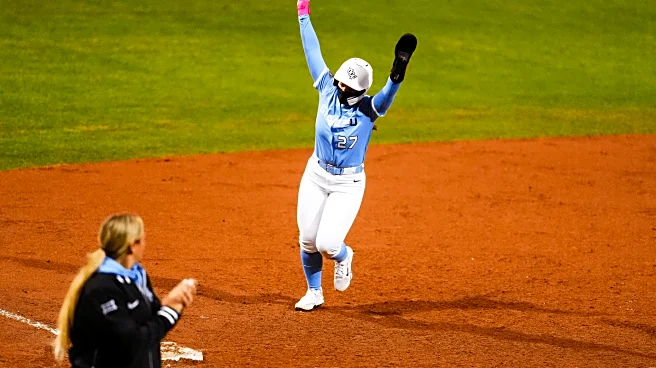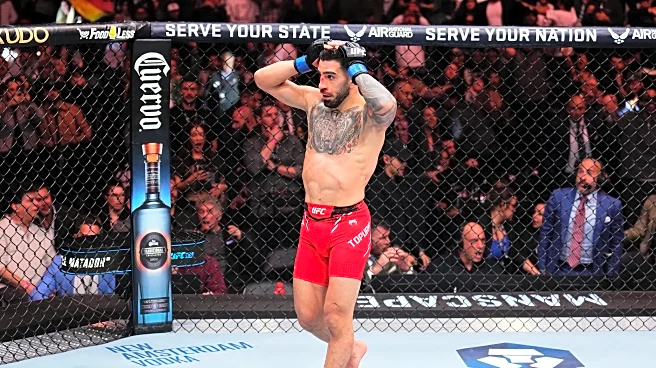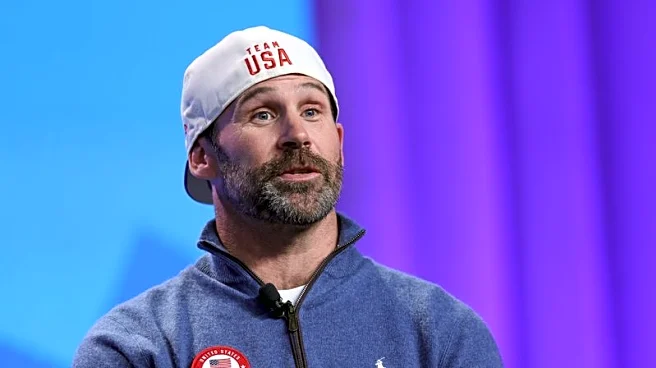What's Happening?
The Vegas Golden Knights have signed Mitch Marner to an eight-year, $96 million contract, marking a significant acquisition for the team. Marner, previously with the Toronto Maple Leafs, is expected to play a crucial role in helping the Golden Knights secure their second Stanley Cup. Known for his ability to score over 100 points and versatility in various game situations, Marner's debut in Las Vegas is highly anticipated. The Golden Knights are considered strong contenders for the Stanley Cup, alongside teams like the Edmonton Oilers and Dallas Stars.
Why It's Important?
Mitch Marner's move to the Vegas Golden Knights is a strategic enhancement for the team, potentially increasing their chances of winning the Stanley Cup. His presence adds depth and skill to the Golden Knights' roster, which could shift the balance of power in the NHL's Western Conference. This acquisition is significant for the team's long-term competitiveness and could influence the dynamics of playoff qualifications in the Pacific Division. The move also highlights the Golden Knights' commitment to maintaining a strong lineup capable of challenging top teams like the Oilers and Stars.
What's Next?
With Marner joining the Golden Knights, the team is expected to solidify their position as a top contender in the NHL. The focus will be on integrating Marner into the team's strategies and maximizing his impact on the ice. The Golden Knights will aim to secure a playoff spot and advance through the postseason, with the ultimate goal of winning the Stanley Cup. Other teams in the Pacific Division, such as the Los Angeles Kings, will need to strategize to compete for playoff positions, given the strengthened lineup of the Golden Knights.
Beyond the Headlines
Mitch Marner's transition from Toronto to Las Vegas represents a shift from a traditional hockey market to a non-traditional one, which could affect his media exposure and fan interactions. The move also underscores the evolving nature of player contracts and team strategies in the NHL, as teams increasingly focus on acquiring high-impact players to enhance their competitive edge. This development may influence future player movements and contract negotiations within the league.











